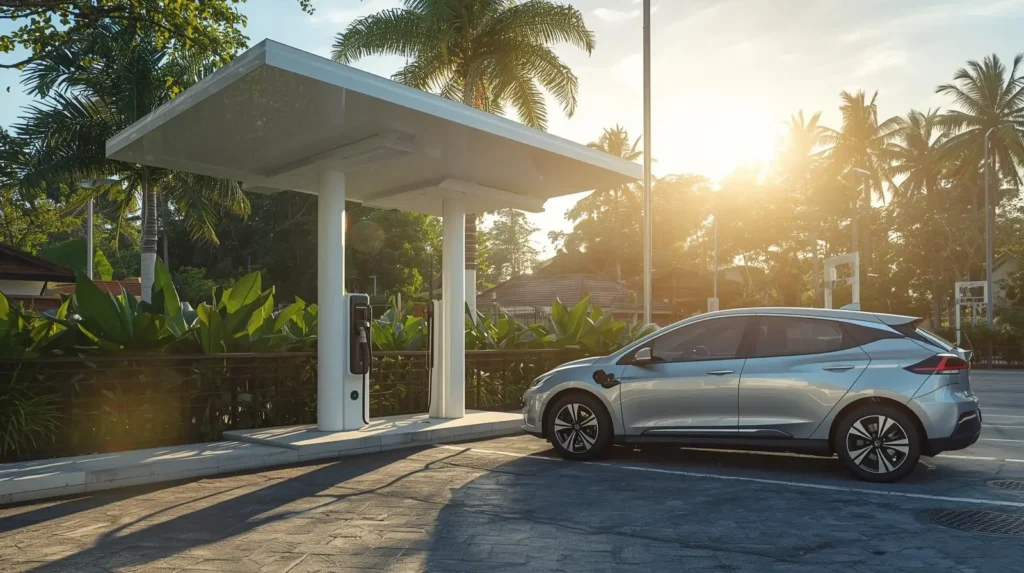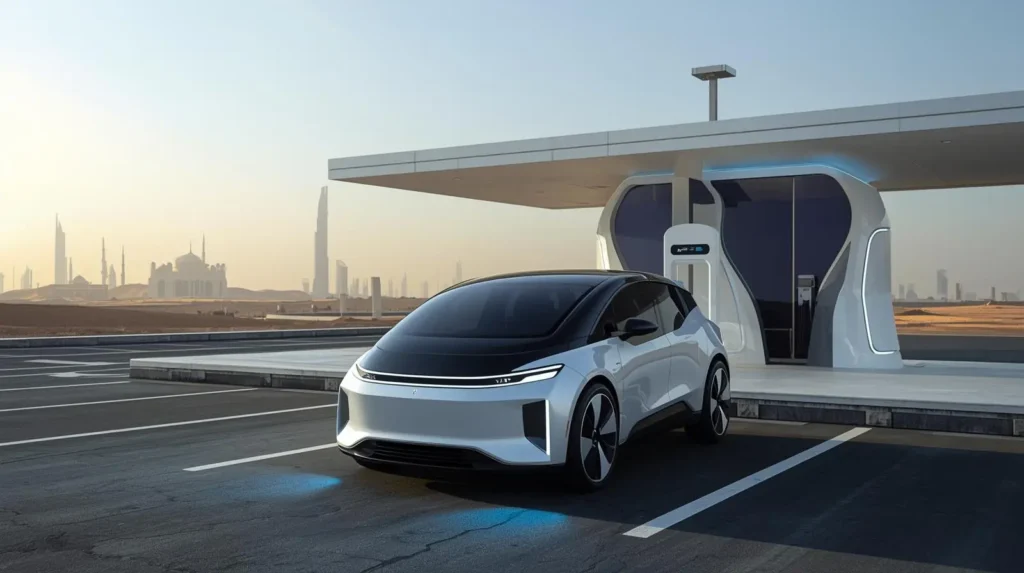
Sustainable tourism aims in providing more benefits to tourists without creating any negative impact on our environment. The expansion of transportation is critical to the expansion and development of tourism. It makes it possible for tourists to reach the location. Tourism is hindered in the area with the least accessibility. Not only is transportation required for tourism, but it is also essential for economic development. The importance of transportation has highlighted the topic of discussion electric vehicles in sustainable tourism. Let us see how electric vehicles helps in achieving sustainable tourism.
Sustainable Tourism
Sustainable tourism focuses on travel that has a minimum environmental and community impact. The concepts of sustainable tourism and sustainable mobility are closely linked. Tourism’s reliance on fossil fuels and its impact on climate change are two important factors. Transportation accounts for 72% of tourism CO2 emissions, accommodation accounts for 24%, and local activities account for 4%. Aviation is responsible for 55 % of transportation CO2 emissions (or 40 percent of overall tourism CO2 emissions).
Sustainable tourism is defined by the UN Environment Program and UN World Tourism Organization as “tourism that takes full account of its current and future economic, social and environmental impacts, addressing the needs of visitors, the industry, the environment and host communities.”
Responsibilities of Sustainable Tourism :
- Environment, natural resources, and animal protection
- Providing socioeconomic benefits to populations living around tourist attractions
- Cultural heritage preservation and authentic tourism experiences
- Bringing local communities and tourists together for mutual gain
- Creating tourist opportunities that are inclusive and accessible.
Benefits of Sustainable Tourism:
- Helps to save endangered species
- Reduces pollution and environmental impact
- Protects landscapes and heritages
- Helps to support local communities and preserve their culture
- Creates awareness among tourists and people

Ecotourism vs Sustainable Tourism
Ecotourism is more concerned with environmental conservation and educating visitors about local habitats and natural surrounds, whereas sustainable tourism is concerned with travel that has a low environmental and social impact.
The majority of ecotourism enterprises are committed to wildlife conservation, and many of them help local populations. Ecotourism as a mode of transportation can be far less environmentally friendly than a normal city trip. Ecotourism leaves much larger carbon footprint than traditional tourism. This is because ecotourist destinations are located at inaccessible locations. Hence it requires more transportation to reach there.
While, sustainable tourism focuses on the overall environmental impact of tourism. Hence, they are considered better than ecotourism.
| Ecotourism | Sustainable tourism |
|---|---|
| Takes place in natural spaces | Developed in urban and rural spaces |
| It is a form of sustainable tourism | It is an application of sustainable development |
| It has a positive economic impact due to inclusion of local local communities. | It has an economic impact not only on the local economy but also on the whole tourism sector |
| Leaves much larger carbon footprint. | Leaves much lesser carbon footprint. |
Impact of electric vehicles in Sustainable Tourism

1. Cleaner air and reduced air pollution
The use of fossil fuels in transportation degrades local air quality and has a negative impact on our climate. CO2 and other dangerous air pollutants such as nitrogen oxides and particulate matter are emitted in the exhaust. Clearly, introducing electric vehicles into the fleet can reduce overall greenhouse gas (GHG) emissions and air pollution, especially if the electricity utilized is renewable. However, even if electricity is generated using fossil fuels, switching to electric vehicles can assist the urban environment by reducing local air pollution.
2. Reduced noise pollution
Electric vehicles are quiet when in operation, making for a pleasant ride. There are no engines under the hood, and there is no noise to accompany them. Because conventional automobiles rely on noisy internal combustion engines for power, the procedures in electric cars are substantially quieter. As a result, they reduce noise pollution while also improving urban quality.
Noise Induced Hearing Loss is the most common health condition caused by noise pollution (NIHL). This is a persistent condition caused by damage to the inner ear’s delicate tissues. Noise pollution has also been linked to increased anxiety, high blood pressure, heart disease, and strokes, according to several studies. According to one study, those who live near a road are 25% more likely to suffer from depression.
3. Helps in reaching inaccessible areas
There are many tourist destinations located at inaccessible locations. There are cases when there are not any public transport to reach these locations. Hence, in such cases electric vehicles turns out be a right solution to achieve sustainable tourism.
4. Low running costs
In terms of regular fuel and maintenance, the costs of owning and operating an electric vehicle are lower. This is mainly because electric vehicles have fewer moving parts than vehicles with internal combustion engines. As a result, the number of working parts that must be replaced is reduced. According to studies, an electric automobile costs at least 30% less to maintain and service than a conventional car.
5. Spreads awareness
The use of electric vehicles are encouraged by our government. There are appropriate subsidies for electric vehicle owners. As we can see more number of tourists are switching into eco-friendly practices. They are trying to follow practices that have lesser impact on environment. The use of electric cars or vehicles creates awareness among the tourists and spreads the need for sustainable tourism.
How electric bikes helped in sustainable tourism?

A bicycle with an integrated electric motor that can help propulsion is known as an electric bicycle. Electric cycles, to put it simply, are bicycles that are driven by a motor and make riding a pleasure. The popularity of electric bikes is likely to increase in other parts of the country as charging facilities and dedicated cycling lanes are developed.
Using an Ebike has numerous advantages. Apart from helping the environment, it also aids in the maintenance of physical health and the development of stamina. Ebikes are an excellent personal mobility vehicle for short distance travel and automatically maintain social distance from others. It also does not require registration or a driver’s licence. They create minimum carbon footprint.
To reduce pollution, several historical sites, such as the Taj Mahal, do not allow petrol or diesel vehicles within 500 metres.
Read Ahead



